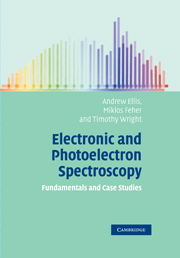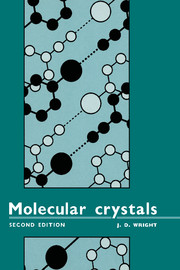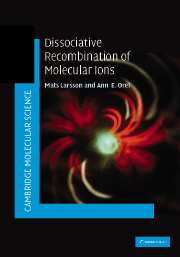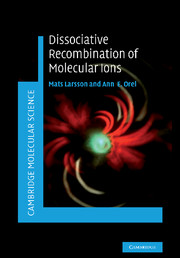Electronic and Photoelectron Spectroscopy
Electronic and photoelectron spectroscopy provides extraordinarily detailed information on the properties of molecules. This book presents the basic principles and experimental techniques employed in electronic and photoelectron spectroscopy. A major feature is the extensive use of case studies to illustrate how spectra are assigned and how information can be extracted. The text is intended for advanced undergraduate and graduate students studying courses in spectroscopy.
- Describes the theory and experimental techniques behind electronic and photoelectron spectroscopy
- Extensive use of case studies allows the reader to follow the reasoning employed in the assignment of molecular spectra and how the information is extracted from the spectrum
- Describes spectroscopic techniques
Reviews & endorsements
"For a scientist with a solid math and chemistry background, this is an excellent book on spectroscopy. Highly recommended." CHOICE
"This text bridges the gap between the basics and cutting edge applications of electronic spectroscopy at a level appropriate for upper-level undergraduates and junior graduate students...clearly written and easily digested." - Journal of the American Chemistry Society, Caroline Chick Jarrold, Indiana University
Product details
May 2005Adobe eBook Reader
9780511079016
0 pages
0kg
This ISBN is for an eBook version which is distributed on our behalf by a third party.
Table of Contents
- Preface
- List of journal abbreviations
- Part I. Foundations of Electronic and Photoelectron Spectroscopy:
- 1 Introduction
- 2. Electronic structure
- 3. Angular momentum in spectroscopy
- 4. Classification of electronic states
- 5. Molecular vibrations
- 6. Molecular rotations
- 7. Transition probabilities
- Part II. Experimental Techniques:
- 8. The sample
- 9. Broadening of spectroscopic lines
- 10. Lasers
- 11. Optical spectroscopy
- 12. Photoelectron spectroscopy
- Part III. Case Studies:
- 13. Ultraviolet photoelectron spectrum of CO
- 14. Photoelectron spectra of CO2, OCS, and CS2 in a molecular beam
- 15. Photoelectron spectrum of NO2−
- 16. Laser-induced fluorescence spectroscopy of C3: rotational structure in the 300 nm system
- 17. Photoionization spectrum of diphenylamine: an unusual illustration of the Franck–Condon principle
- 18. Vibrational structure in the electronic spectrum of 1,4-benzodioxan: assignment of low frequency modes
- 19. Vibrationally resolved ultraviolet spectroscopy of propynal
- 20. Rotationally resolved laser excitation spectrum of propynal
- 21. ZEKE spectroscopy of Al(H2O) and Al(D2O)
- 22. Rotationally resolved electronic spectroscopy of the NO free radical
- 23. Vibrationally resolved spectroscopy of Mg+–rare gas complexes
- 24. Rotationally resolved spectroscopy of Mg+–rare gas complexes
- 25. Vibronic coupling in benzene
- 26. REMPI spectroscopy of chlorobenzene
- 27. Spectroscopy of the chlorobenzene cation
- 28. Cavity ringdown spectroscopy of the a1∆←X3∑g− transition in O2
- Appendices
- Index.





